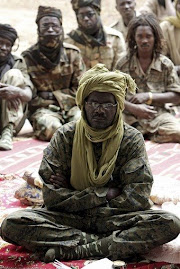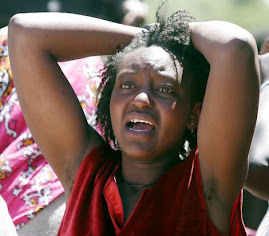While perusing through the introductory draft of "Integral" before publishing it on Saturday, June 28th, 2008, a colleague close to this author, reacted to the whole idea of addressing disunity in South Sudan. "What is the concept of this argument?" He inquired. "Why do people fear to address the issue of South Sudan's separation?" He asked.
"Integral" highly respects this individual and believes that he, before anybody could know about the "Integral" column, did open the debate. It is true that there are people who feel uncomfortable documenting their views on 'separation' of South Sudan from the Sudan in the North – just like there are Southerners who wouldn't like to mention 'unity of Sudan', but both engage in discussions of the issues but not in newspapers or public fora.
The general concept of the "Integral" is to address disunity in South Sudan. However, disunity in South Sudan cannot be addressed in the absence of Sudan's unity. Because South Sudanese leaders, including those interested in cessation, are not only holding some of this country's top government positions but they are major decision makers in the country. Some of them have not shied away from calling for the unity of this country based on newer basis.
SPLM continues to call for the establishment of a new Sudan. The original concept of the new Sudan as conceived by the late Dr John Garang de Mabior is a "united, democratic and secular Sudan" based on Sudanese diversity. Hypothetically, it is difficult for South Sudanese leaders to work for unity of the Sudan when they have not united South Sudan?
In its maiden feature, "Integral" identified – amongst other elements – tribalism, nepotism, land grabbing and occupation, greed for government power, tendency to promote lawlessness by deliberately ignoring to establish law and order and lack of interest in embracing democratic principles as main causes for disunity in South Sudan. Let us look at each and every one of these causes and identify elements within it that disunite South Sudanese.
Tribalism is a noun that means "loyalty to a tribe." It originates from another noun: tribe, which means a "group of clans or families believed to have a common ancestry", (Collins, 2000:635).
"Integral" views tribalism as an important organisation in societies because it ensures unity of a tribe. It eases common difficulties in achieving unity of purpose in a tribe. It secures the tribe from any dangers in case it is threatened. If led by wise people, it could generally work towards ensuring universal peace and establishment of law and order within a larger community of people or state. But this means that tribalism will have to explore newer horizons like looking beyond the tribe. Social Contract theorists would understand this perfectly well.
It is human to practice tribalism but a tribe that practices tribalism should be mindful of other tribes' interests. Thus, one would argue, that there is obviously no reason for any tribe in South Sudan to insist that it mainly fought the war and as such tribes X, Y and Z which did not participate in the war have to be physically abused, robbed of their belongings, tortured or even killed. It is the physical abuse of innocent citizens, robbing of their belongings, torturing and even killing them – in a nutshell: abusing peoples' basic human rights in the name of tribalism – promotes disunity in South Sudan.
GoSS, under 1st-Lt-Gen. Salva Kiir Mayardit, is believed to be trying its best under the circumstances but has to redouble its efforts to arrest tribalism in South Sudan. The parliament of South Sudan and those of the States should enact laws that outlaw the practice of tribalism in South Sudan. An anti-tribalism commission – charged with the responsibilities of combating tribal elements within South Sudan communities – should be established. Any individual(s) caught practicing tribalism should be removed from public office(s), arrested, tried and convicted of practicing tribalism; and should be denied any public office(s) in future.
Saturday, June 28, 2008
Disunity in South Sudan II
Subscribe to:
Post Comments (Atom)
















No comments:
Post a Comment